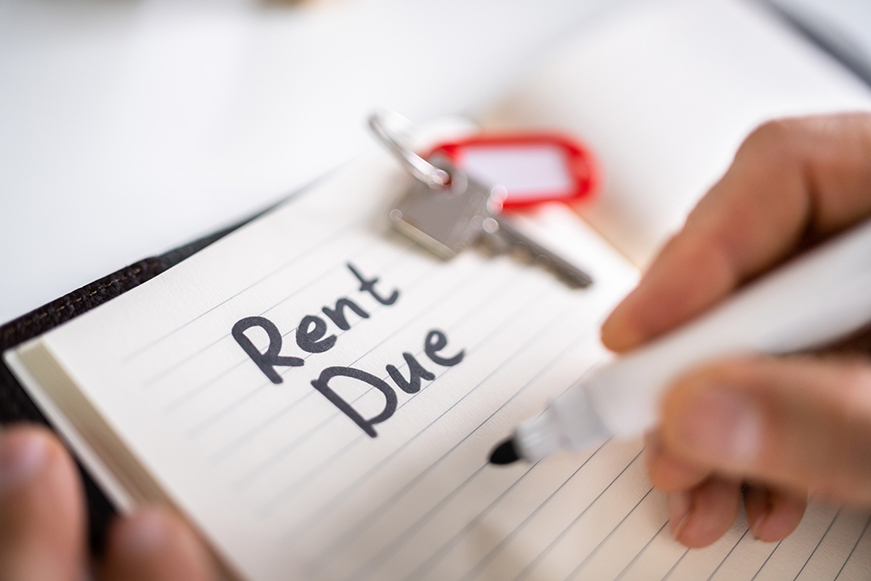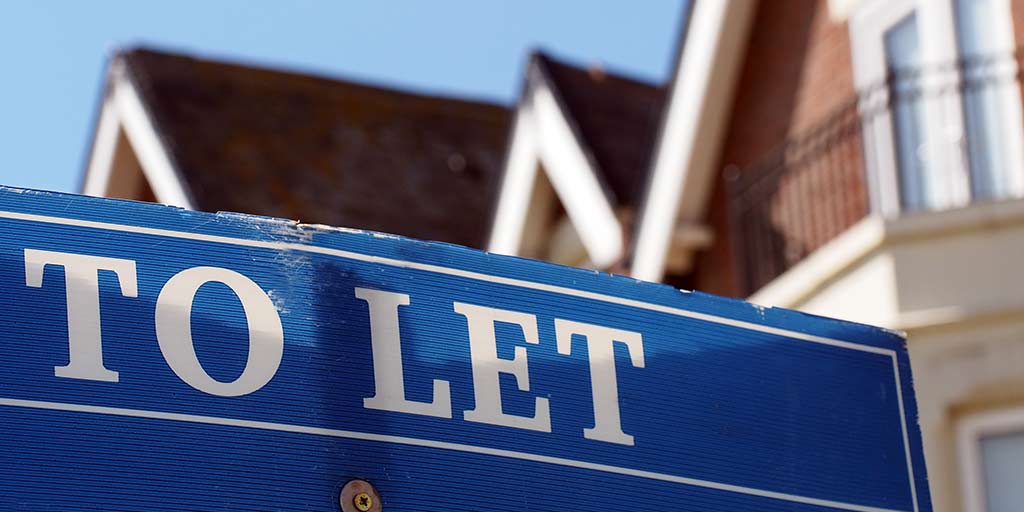Deciding on whether to enter an Individual Voluntary Arrangement (IVA) can feel like a daunting experience.
You have a host of scenarios to consider and one no more important than when it comes to one of life’s most essential necessities, finding a place to call home.
If you’re wondering how an IVA affects certain areas of your life such as renting whilst on an IVA, then this is the article for you.
In this article we help you understand all aspects of renting with an IVA, providing you with invaluable insights and practical advice on everything tenancy related whilst on an IVA.
The Impact of an IVA on Renting

An IVA is a debt solution available to individuals residing in England, Wales, and Northern Ireland, aimed at helping them manage their debts.
However as with all debt solutions, an IVA can impact on credit scores can make it more challenging to rent properties while the agreement is in place.
Despite this, it’s entirely possible to navigate the rental market during an IVA, armed with the right knowledge and a proactive approach.
To better understand the impact of an IVA on renting, it’s essential to explore how it affects credit ratings, managing rent payments during an IVA, and the relationship between tenancy agreements and IVAs.
How IVAs Affect Credit Ratings
An IVA can have an adverse effect on credit ratings, making it more difficult to rent properties during the agreement period. A poor credit rating might discourage landlords and letting agents from renting their properties to individuals with an IVA, as they may perceive them as a higher risk due to their credit history. This is how an IVA can affect renting.
However, there is hope for those seeking to rent during an IVA. Being transparent about your financial situation and demonstrating your commitment to making rent payments, including monthly payments, on time can help alleviate landlords’ concerns and secure the necessary rent deposit.
Moreover, seeking out specialist rental agencies that cater to individuals with poor credit ratings can greatly improve your chances of finding suitable accommodation.
Managing Rent Payments During an IVA
During an IVA, it’s crucial to prioritize rent payments to maintain a stable rental situation. Rent payments are considered priority bills, and an allowance is provided for rent payments before contributions are made to the IVA. This ensures that you can keep a roof over your head while working towards debt resolution.
If you encounter difficulties in making rent payments, it’s essential to seek debt help and guidance on managing your IVA payments. Being proactive in addressing any financial difficulties and communicating with your insolvency practitioner can help you avoid potential complications with your rental agreement and your IVA.
Tenancy Agreements and IVAs
Before committing to an IVA, it’s crucial to review your current rental agreement for any clauses related to insolvency or IVAs. Generally, an IVA does not affect your existing rental agreement. You can stay in your current rental property without any complications.
However, if you’re unable to make rent payments while under an IVA, your landlord may discover your IVA status from the public record known as the Individual Insolvency Register. In such cases, it’s essential to be transparent with your landlord and insolvency practitioner, addressing any potential issues and working towards a solution that satisfies all parties involved.
Dealing with Rent Arrears in an IVA

Rent arrears, or unpaid rent accumulated over time, can be a significant concern for individuals during an IVA. Dealing with rent arrears in an IVA involves considering the inclusion of past rent arrears and handling current rent arrears. Ensuring that your IVA proposal adequately addresses rent arrears can help you avoid complications and maintain a stable rental situation.
It’s essential to understand how including past and current rent arrears in your IVA may affect your rental situation and relationship with your landlord. Let’s explore these aspects further.
Including Past Rent Arrears
Past rent arrears can be included in an IVA as unsecured debt. However, including past rent arrears in your IVA may have repercussions on your rental situation. If your landlord discovers that you’ve included past rent arrears in your IVA, they may be reluctant to extend your tenancy agreement.
To navigate this challenge, it’s essential to be transparent with your landlord and insolvency practitioner about your past rent arrears. Open communication and a well-structured IVA proposal can help you find a solution that works for both you and your landlord, allowing you to maintain a stable rental situation during your IVA.
Handling Current Rent Arrears
Including current rent arrears in an IVA may not be advantageous, as landlords may prefer eviction over receiving payments through the IVA. In such cases, it’s important to explore alternative solutions to address current rent arrears.
Working closely with your insolvency practitioner and being proactive in addressing current rent arrears can help you find a solution that meets both your needs and your landlord’s expectations. Demonstrating your commitment to making rent payments and addressing any financial difficulties can go a long way in maintaining a positive relationship with your landlord during your IVA.
Renting a New Property While Under an IVA

Renting a new property during an IVA can be challenging, as your poor credit rating may deter landlords and letting agents from renting a property to you. However, with the right approach and resources, it is possible to secure a rented property while under an IVA.
To successfully rent a new property during an IVA, it’s essential to explore strategies for finding accommodation with a poor credit rating and working with guarantors or co-tenants to improve your chances of securing a rental property.
Finding Accommodation with a Poor Credit Rating
Securing a rental property with a poor credit rating during an IVA may require additional effort, but it’s not an insurmountable challenge. Being transparent with landlords or letting agents about your financial situation can help alleviate their concerns and demonstrate your commitment to making rent payments on time.
Another strategy is to seek out specialist rental agencies that cater to individuals with poor credit ratings. These agencies can offer guidance and support in your search for suitable accommodation, making the process of renting a new property during an IVA more manageable and less stressful.
Working with Guarantors or Co-Tenants
Having a guarantor or co-tenant with a better credit rating can significantly improve your chances of securing a rental property during an IVA. A guarantor is an individual who is held accountable for your rent payments if you fail to make them, providing additional assurance to the landlord.
Alternatively, you can consider co-tenancy with someone who has a better credit rating. By sharing the responsibility of rent payments and combining your financial resources, you can present a more attractive proposition to landlords and letting agents, increasing the likelihood of securing a rental property during your IVA.
Life After an IVA: Renting and Rebuilding Credit

Life after an IVA presents its own set of challenges, as you work to rebuild your credit history and secure rental properties in the future. The key to success in this phase lies in understanding the rental market post-IVA and taking proactive steps to rebuild your credit history.
With the right strategies and determination, you can successfully rent properties and enjoy greater financial stability after your IVA. Let’s delve into renting post-IVA and the process of rebuilding your credit history.
Renting Post-IVA
While it may initially be challenging to rent properties after an IVA, your credit rating will gradually improve over time as you demonstrate responsible financial behavior and make timely payments. As your credit rating improves, you will become more attractive to landlords and letting agents, increasing your chances of securing rental properties post-IVA.
It’s essential to be patient and diligent during this period, focusing on rebuilding your credit history and maintaining a positive financial track record. Regularly checking your credit report will not only improve your rental prospects, but also contribute to your overall financial stability in the long run.
Rebuilding Your Credit History
Rebuilding your credit history after an IVA involves staying on top of your debt repayments, using credit responsibly, and waiting for the IVA to be removed from your credit file. As you demonstrate responsible financial behavior and make timely payments, your credit rating will improve, increasing your chances of securing rental properties in the future.
Seeking debt help and impartial money advice during this period can further support your efforts in rebuilding your credit history. By staying focused and committed to regaining control of your finances, you can overcome the challenges of renting post-IVA and enjoy a brighter financial future.
Navigating Debt Solutions and IVAs

Choosing the right debt solution and understanding the role of insolvency practitioners in managing your IVA is crucial to ensuring a successful outcome. With the right guidance and support, you can navigate the complexities of debt solutions and IVAs, ultimately achieving financial stability and a better quality of life.
In this final section, we’ll explore how to choose the appropriate debt solution and the vital role of insolvency practitioners in managing your IVA.
Choosing the Appropriate Debt Solution

Selecting the right debt solution is essential for ensuring the most effective and efficient path to financial stability. Factors to consider when selecting a debt solution include your individual circumstances, the amount of debt you have, and the amount of money you can afford to repay.
Seeking impartial money advice and debt help can assist you in making an informed decision about the best debt solution for your specific situation. By choosing the appropriate debt solution, you can regain control of your finances and work towards a brighter financial future.
The Role of Insolvency Practitioners
Insolvency practitioners play a vital role in managing IVAs, providing advice, and ensuring the successful completion of the agreement. They oversee the IVA process, guaranteeing compliance with the terms of the agreement, and offering guidance on how to optimize the IVA.
By working closely with your insolvency practitioner and following their advice, you can ensure the smooth management of your IVA and ultimately achieve financial stability. Remember, insolvency practitioners are there to support you throughout your journey towards regaining control of your finances.
Summary
In conclusion, navigating the world of renting with an IVA can be challenging, but with the right knowledge, strategies, and support, it is possible to overcome these obstacles and secure a stable rental situation. By understanding the impact of an IVA on renting, managing rent payments and arrears, finding accommodation with a poor credit rating, working with guarantors or co-tenants, and rebuilding your credit history, you can pave the way for a brighter financial future. Embrace the challenges, stay committed to your financial goals, and remember: regaining control of your finances is just a few clicks away.
Frequently Asked Questions
Is it possible to rent with an IVA?
It is possible to rent with an IVA, as it should not affect your current rental contract. However, it is advisable to check your contract for any clauses restricting insolvency while residing at the address, and your landlord won’t be informed about the agreement.
Can you pass a credit check with an IVA?
It can be difficult to pass a credit check with an active IVA as lenders may be hesitant to approve further credit due to the greater risk of defaulting on future payments.
However, there are still options available to those with an IVA. It is possible to apply for a loan with a guarantor, or to look for a specialist lender who may be more willing to accept the risk.
It is also important to have a good relationship with the government.
Can I rent a council house with an IVA?
It is possible to rent a council house with an IVA, as long as your rent payments are kept up to date.
Moving to a new council property is also an option.
How can I manage rent payments during an IVA?
Prioritize rent payments to maintain stability and work closely with your insolvency practitioner to address any financial difficulties.
How can I find accommodation with a poor credit rating during an IVA?
Being transparent with landlords about your IVA and financial situation, seeking out specialist rental agencies, and working with guarantors or co-tenants may help improve your chances of getting a rental property despite having a poor credit rating.
These strategies can help to demonstrate to landlords that you are a responsible tenant and that you are taking steps to improve your financial situation.



